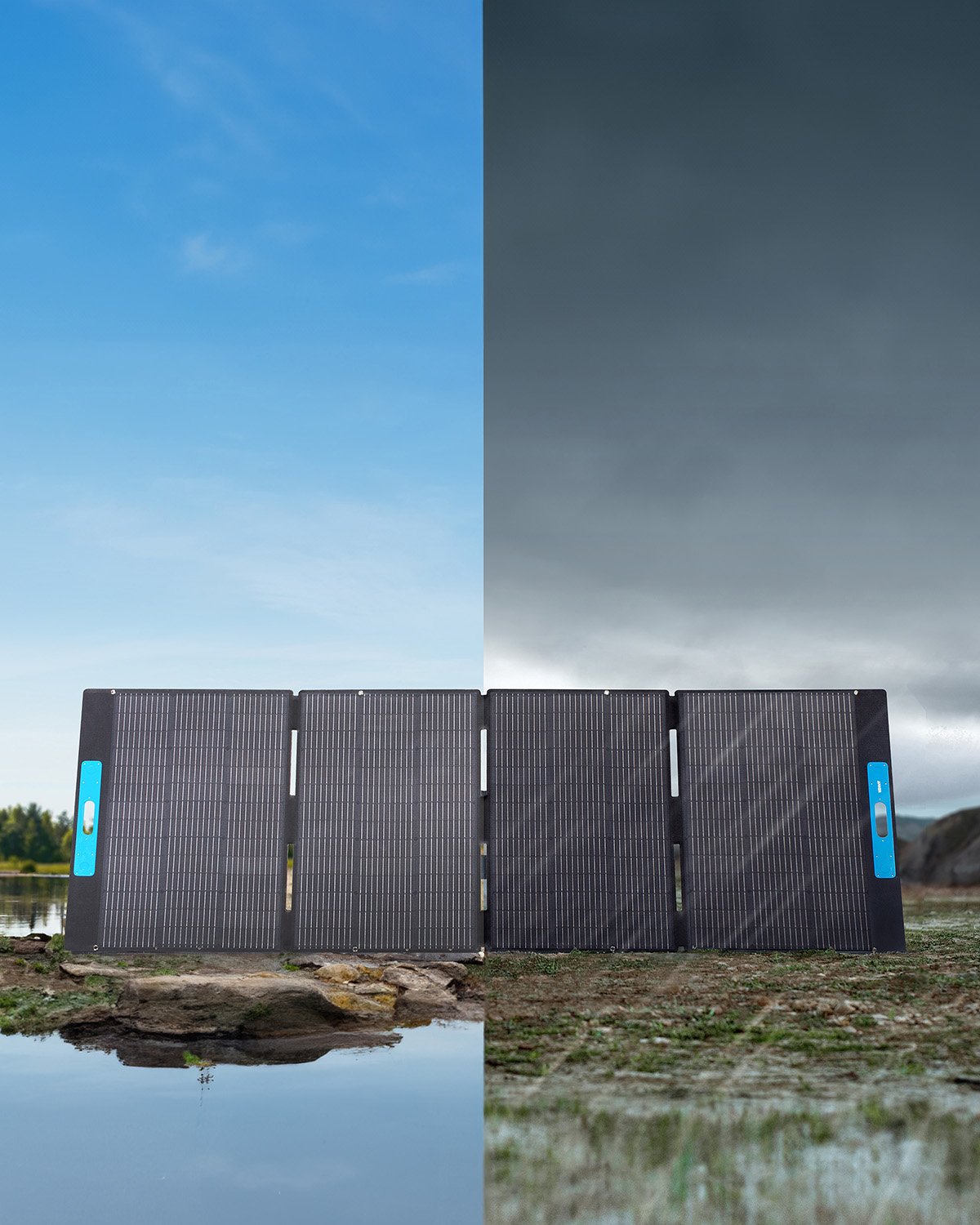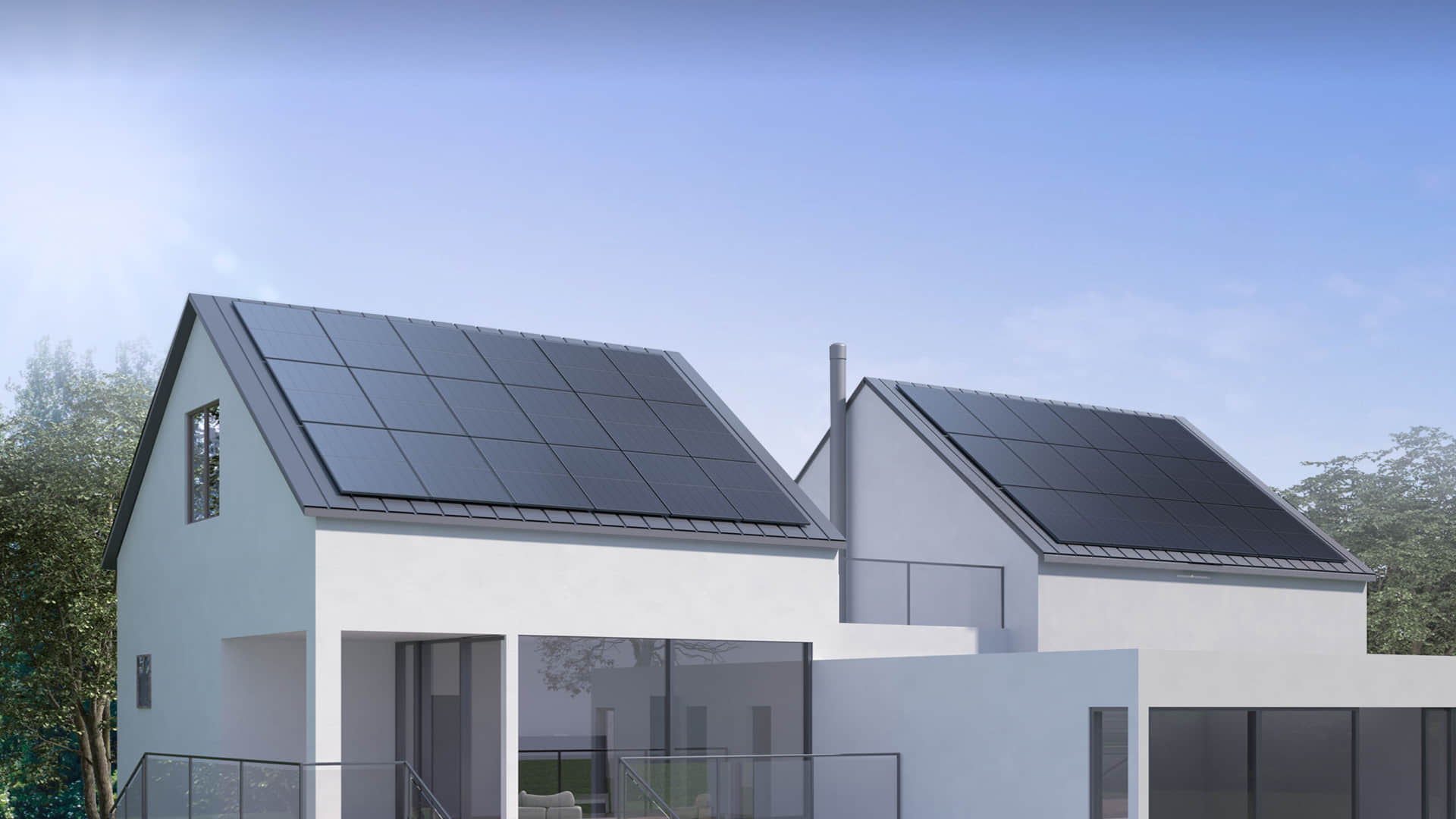
*This post contains affiliate links, so we may earn a small commission when you purchase through links on our site at no additional cost to you.
Are you considering using solar panels to fuel your adventures or simply want to lighten your carbon footprint at home? Solar panels offer an eco-friendly solution, but choosing between portable and rigid options can be as daunting as choosing between a backpack and a suitcase for your travels. Fear not! Let’s shed some light on the pros and cons of portable solar panels versus rigid, mountable ones, and explore possible scenarios for when to opt for each.
Portable Solar Panels
Portable solar panels are like the Swiss Army knives of renewable energy—they’re compact, lightweight, and versatile. Here’s why they might be your go-to choice:
Pros of Portable Solar Panels
- Mobility: These panels are designed for on-the-go use, making them perfect for camping trips, RV adventures, or hiking expeditions. Just throw them in your backpack or trunk, and you’re ready to power up wherever the sun shines.
- Ease of Installation: Forget about drilling holes or hiring professionals. Portable solar panels typically come with easy-to-use setups, allowing even beginners to harness solar energy in no time.
- Adaptability: Whether you’re in the desert, on a snowy mountain, or by the beach, portable panels can be adjusted to capture optimal sunlight, thanks to their adjustable stands or attachment options.
- Backup Power: In case of emergencies or off-grid situations, portable solar panels can be a lifesaver. Anker’s portable solar panels provide a reliable source of power for charging devices directly from the panel. Or, you can keep a portable power station charged for running lights, or even powering small appliances when traditional electricity is unavailable.
Cons of Portal Solar Panels
- Limited Capacity: Due to their smaller size and lower wattage, portable solar panels may not generate as much power as their rigid counterparts. This means they’re best suited for recharging a solar generator during power outages versus directly providing electricity to an entire home.
- Weather Dependence: While portable panels are designed to withstand outdoor conditions, their efficiency can be affected by factors like cloud cover, shade, or inclement weather. So, if you’re relying solely on solar power, be prepared for fluctuations in energy output.
When to Choose Portable Solar Panels
Outdoor Adventures: Whether camping, boating, or road-tripping, portable solar panels are a convenient way to stay powered up while enjoying the great outdoors.
Emergency Preparedness: Keep a portable solar panel and power station handy in your emergency supplies for reliable backup power during blackouts or natural disasters.
Remote Locations: If you’re building a remote cabin or setting up a temporary workspace in a remote area, portable panels offer a convenient off-grid power solution.
Pictured: Anker SOLIX PS400 Portable Solar Panel
Rigid, Mountable Solar Panels
Rigid solar panels are the stalwarts of residential and commercial solar installations, providing a sturdy and reliable source of renewable energy. Here’s why they might be the right choice for your home or business:
Pros of Rigid, Mountable Solar Panels
- High Efficiency: Rigid solar panels typically have higher wattage capacities and efficiency ratings compared to portable panels, making them suitable for larger-scale energy production.
- Longevity: Mounted solar panels are built to last, with durable materials and weather-resistant designs that can withstand years of exposure to the elements. Most rigid solar panels have more robust warranties and can last decades with regular, light maintenance.
- Energy Independence: By installing rigid solar panels on your rooftop or property, you can significantly reduce your reliance on grid electricity and potentially lower your energy bills over time.
- Home Value: Solar panels are increasingly seen as desirable additions to residential properties, potentially increasing the resale value of your home and appealing to eco-conscious buyers. Some U.S. states offer property tax incentives so that your solar panels are not factored into property tax for a period of time.
Cons of Rigid, Mountable Solar Panels
- Installation Complexity: Unlike portable panels, rigid solar panels require professional installation, which can be costly and time-consuming. You’ll also need to consider factors like roof orientation, shading, and structural integrity.
- Fixed Positioning: Rigid panels are stationary once installed and cannot be easily repositioned to optimize sunlight exposure. This means their efficiency may be affected by factors like roof angle and surrounding obstructions. Wiring mounted panels in parallel can help offset minor shading of panels.
When to Choose Rigid Solar Panels
Permanent Residences: If you own a home or business and are looking to make a long-term investment in renewable energy, rigid solar panels offer a reliable and cost-effective solution.
High Energy Demand: For households or businesses with high energy consumption, rigid panels can provide the power output needed to meet your needs efficiently.
Roof Space Optimization: If you have ample roof space with minimal shading and good sun exposure, mounted solar panels can maximize your energy production potential.
Yard Space Optimization: If you have a large yard, mounting rigid solar panels in your yard is always an option. Solar array ground mount kits are available on Amazon or can be a simple DIY build.
Pictured: EcoFlow 400W Rigid Solar Panels
Choosing between portable and rigid solar panels ultimately depends on your specific needs, lifestyle, and budget. For adventurers and outdoor enthusiasts, portable panels offer freedom and flexibility, while rigid panels are ideal for homeowners and businesses seeking a sustainable energy solution.
By understanding the pros and cons of each option and considering your unique circumstances, you can choose the solar panels that best fit your needs. So, whether you’re hitting the trails or powering your home, let the sunshine in with solar energy!







